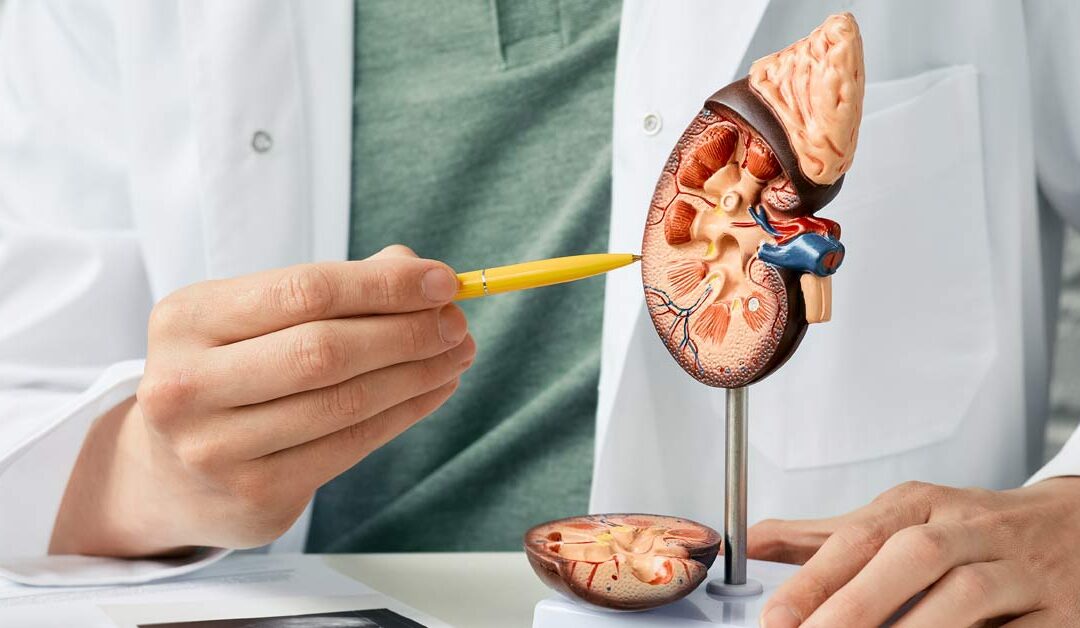Kidney stones are a painful and often surprising condition, but they rarely appear out of nowhere. So, how do you get kidney stones in the first place? The answer lies in a mix of hydration, diet, body chemistry, and sometimes genetics. These hard mineral deposits form when substances like calcium, oxalate, or uric acid become too concentrated in your urine. Instead of being flushed out, they stick together.
Some stones are tiny and pass without notice. Others grow large enough to block urine flow, trigger intense pain, or require medical treatment. Understanding what causes kidney stones is the first step to avoiding them and the discomfort they bring.
How Do You Get Kidney Stones?
Kidney stones are rarely the result of a single cause. Instead, they usually develop from a combination of factors. Here are 12 common causes of kidney stones:
1. Dehydration
Not drinking enough water concentrates the substances in urine that form stones. People who sweat heavily from exercise or work, live in hot climates, or don’t drink enough fluids regularly are especially at risk.
2. Diet High in Stone-Forming Substances
Some substances that form kidney stones can be found in your diet, and consuming them may cause stones to develop:
- High in oxalate: spinach, nuts, and chocolate
- Phosphate: meats and beans
- Uric acid-producing foods like red meats and shellfish can increase your risk.
3. High Salt Intake
When you eat too much sodium, the kidneys release more calcium into the urine through a complex process. This encourages stone formation.
4. High Sugar Intake
Excess sugar, particularly the types found in table sugar and high-fructose corn syrup, has been linked to increased kidney stone risk.
5. Having a High Body Weight
A high body mass index (BMI), large waist size, and weight gain can change the acid balance in urine, promoting stone formation.
6. Family History and Genetics
Kidney stones can run in families. If a parent, sibling, or other close relative had stones, you are more likely to develop them yourself.
7. High Calcium in Urine
Some people naturally excrete too much calcium into their urine, even without consuming extra calcium. This condition, called hypercalciuria, raises the risk of forming calcium stones.
8. Gout
Gout causes high levels of uric acid in the blood and urine. Excess uric acid can crystallize and form uric acid stones, especially if hydration is poor.
9. Low Citrate Levels
Citrate is a natural chemical in urine that binds with calcium. People with low citrate levels lose a natural protective mechanism that helps prevent calcium from forming crystals.
10. Digestive Diseases and Surgery
Conditions like inflammatory bowel disease (IBD), persistent diarrhea, or surgeries like gastric bypass can change the way your body absorbs calcium and water. This increases stone-forming substances in the urine.
11. Medical Conditions
Illnesses, such as recurrent urinary tract infections (UTIs) and hyperparathyroidism, can change the chemical makeup of urine. Infections with certain bacteria, such as Proteus species, can cause large struvite stones that grow quickly.
12. Medications
Some medications raise the risk of kidney stones, including:
- Diuretics (water pills)
- Calcium-containing antacids
- High-dose Vitamin C supplements
- Dietary supplements in excess
- Laxative overuse
- Certain migraine and depression medications
If you’re on long-term medication, it’s worth discussing stone risks with your doctor.
See a Doctor About Kidney Stones
Staying hydrated, maintaining a healthy diet, managing your weight, and discussing risk factors with your doctor can help with prevention. Understanding more about how you get kidney stones can help you avoid them.
If you’re concerned about kidney stones or experiencing symptoms, don’t delay – call (541) 334-3350 to schedule an appointment today!


